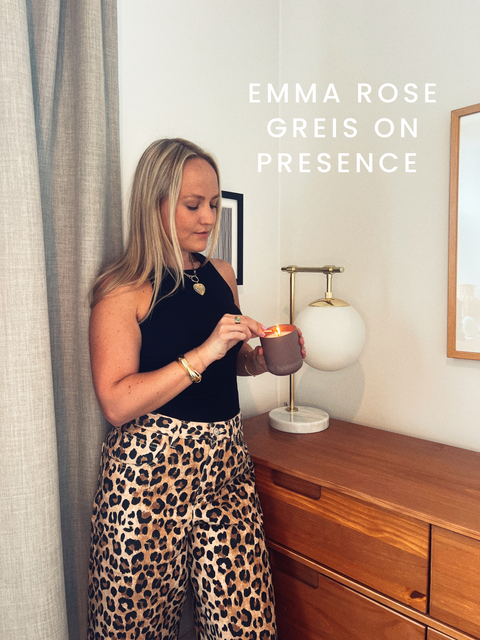On this week’s Rituals of Caftari, I sit down with Katie Garry — the founder and CEO of Seek Health Test, the first at-home test designed to reveal how alcohol uniquely affects women’s health.
What started as a search for answers became a movement rooted in science, self-awareness, and systemic change. Katie shares the personal frustration that sparked Seek, and how building it transformed her relationship with her body, her intuition, and her definition of wellness.
What inspired you to build something so specific and necessary for women’s health?
I was inspired to build Seek after trying—and failing—to find personalized answers about how alcohol affects my body. I realized there was nothing that could tell me how alcohol impacts me differently from other women. The data just didn’t exist in a way that felt accessible, actionable, or even remotely tailored to women’s health. That’s when I knew there was a gap that needed to be filled.
What daily ritual helps you return to your “why” on the hard days?
I meditate every morning for at least 10 minutes—this is non-negotiable for me. It helps me reconnect to myself before the day begins. I also keep a gratitude list almost every day and try to make it to yoga regularly. These rituals keep me grounded and remind me why I do what I do.
As someone working in wellness through science, what role does intuition play in your process?
A huge role. While Seek’s product is 100% rooted in science and the latest clinical research, when it comes to business decisions—like hiring or partnerships—intuition is everything. I gather all the data I can, but ultimately, I trust my gut to guide the final call. Intuition is what helps me move forward with clarity and confidence.
Body Awareness & Sensory Anchors
Has creating this company changed how you listen to your body or regulate your energy?
Absolutely. I thought I understood burnout before starting a company—I was very wrong. Now I’m much more attuned to my body’s signals. I’ve learned how to identify burnout before it fully hits, which allows me to proactively regulate my energy.
Are there any rituals you practice to signal a transition—from work to rest, or from productivity to stillness?
Yes! I have a little end-of-day ritual that helps me shift gears. I mix seltzer with a Calm powder (magnesium + L-theanine), take a hot shower, and listen to a guided meditation or podcast. I also limit screen time at night and usually read or listen to an audiobook to wind down.
What sensory cues (like scent, light, or sound) help you shift your internal state?
Sound-wise, guided meditations are my go-to. For light, I love experimenting with my Hatch alarm clock—it has beautiful settings that help create the mood I need. And for scent, Caftari candles are everything. They make it so easy to shift from work mode to wind-down mode.
Emotional & Physical Restoration
How do you care for your nervous system when you're in high-output or high-stakes mode?
I stay consistent with my wellness rituals, even when things are hectic. Meditation and my gratitude list are daily staples. And I’ve learned that talking things through—whether it’s business-related stress or something personal—is one of the most effective ways I regulate my nervous system.
What does “resetting” look like for you—physically, mentally, emotionally?
Resetting means actually stepping away from my laptop. I learned this the hard way. Lately, I’ve been experimenting with micro-breaks—just 10–15 minutes away from the screen to meditate or take a walk. It’s small, but it makes a huge difference in how I show up for the rest of the day.
Is there a scent or environment that makes you feel safe, clear, or anchored?
There’s a spot on the floor in my apartment where I meditate that instantly makes me feel safe and grounded. Lavender is my favorite scent—it’s calming and helps me relax pretty quickly.
Poetic Closer
What do you hope more women give themselves permission to feel?
I hope more women give themselves permission to feel empowered to be exactly who they are—and to follow rituals that bring them inner peace and joy. We’re constantly being told what to be and what not to be. But when we get quiet, tune in, and follow our intuition, everything starts to align—personally and professionally.
Has your relationship to scent changed as you've become more attuned to how your body responds to external inputs—like alcohol, stress, or sleep?
Absolutely. Since changing my relationship with alcohol, every sense has become more heightened. I’m far more sensitive to anything that dysregulates my body. Most of us are so used to running on empty that we mistake dysregulation for normal. The beauty of shifting your rituals is that it doesn’t have to be that way. You can find a new normal that feels calm, clear, and deeply restorative.





Comments (1)
I was recently scammed out of $53,000 by a fraudulent Bitcoin investment scheme, which added significant stress to my already difficult health issues, as I was also facing cancer surgery expenses. Desperate to recover my funds, I spent hours researching and consulting other victims, which led me to discover the excellent reputation of Capital Crypto Recover, I came across a Google post It was only after spending many hours researching and asking other victims for advice that I discovered Capital Crypto Recovery’s stellar reputation. I decided to contact them because of their successful recovery record and encouraging client testimonials. I had no idea that this would be the pivotal moment in my fight against cryptocurrency theft. Thanks to their expert team, I was able to recover my lost cryptocurrency back. The process was intricate, but Capital Crypto Recovery’s commitment to utilizing the latest technology ensured a successful outcome. I highly recommend their services to anyone who has fallen victim to cryptocurrency fraud. For assistance contact Recoverycapital@fastservice.com and on Telegram OR Call Number +1 (336)390-6684 via email:: Capitalcryptorecover @ zohomail. com you can visit his website: https://recovercapital.wixsite.com/capital-crypto-rec-1